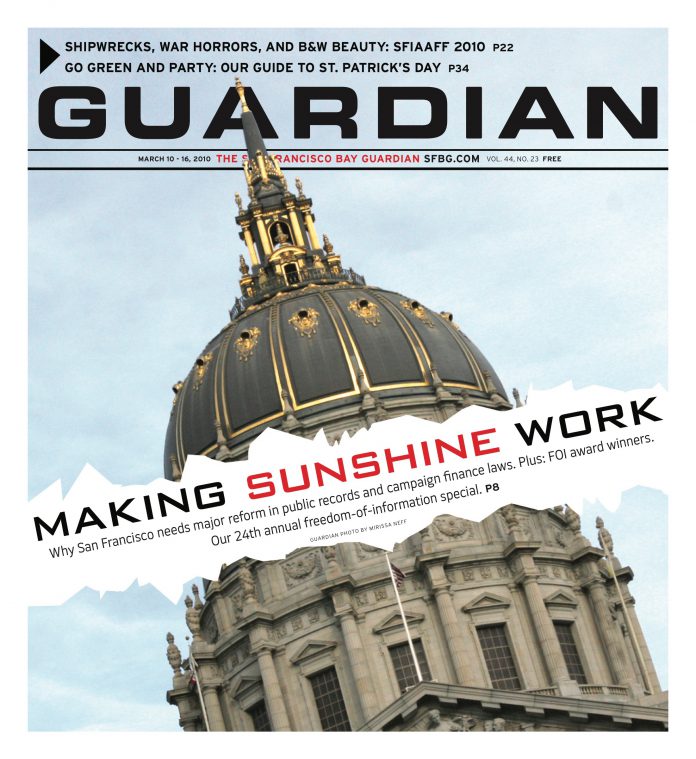MUSIC I am a Judaism junkie. I love Fiddler on the Roof. I read Heeb magazine online. And I collect Jewish puns the way Midwest moms used to collect Beanie Babies. But until recently, I knew shockingly little about Jewish music. Turns out the term doesn’t just refer to music made by Jews (sorry, Beastie Boys), nor is it limited to songs sung in synagogue. Even the broad genre of klezmer music is just one facet of an ancient and dynamic musical tradition that mixes the theme of Jewish experience with Jewish languages like Yiddish, Hebrew, Ladino (Judeo-Spanish), and Judeo-Arabic dialects, all translated through crosscultural musical tropes. And just as the Jewish experience continues to grow and change, so does the music associated with it.
It is this ongoing genre-bending cultural conversation that the 25th edition of Berkeley’s Jewish Music Festival, hosted by the Jewish Community Center of the East Bay, will honor. “This year, we’re focusing on that dialogue between the sacred and the secular,” said director Eleanor Shapiro. “The idea was music that’s revelation as well as revelry.”
The program starts with sacred Jewish and Muslim music from the Middle East, performed by the award-winning Yuval Ron Ensemble (whose founder and namesake, incidentally, won an Oscar for the score of the comedy short West Bank Story). Next up is a free concert for Jewish sacred music that can be sung during the Sabbath and on Passover (which starts several days later).
The lineup takes a contemporary turn with the American premiere of Diaspora Redux, a jazzy, avant-garde project created by top musicians from New York, Berlin, and Buenos Aires, and featuring members of Klezmer Buenos Aires, who were a hit at the 2007 festival and will perform as a duet during a special Monday matinee. Sunday sees the West Coast premiere of Saints and Tzadik, a collaboration between Grammy-winning Celtic singer Susan McKeown and Klezmatics alum Lorin Sklamberg.
As if that isn’t enough, four of the festival’s musicians will host a four-hour master class for seasoned musicians. And, for the first time, the festival will return for one day in July for a free, outdoor concert featuring local Jewish music talent and a new work from award-winning composer Dan Plonsey exploring the theme of becoming an adult.
Shapiro says the intention of the festival has always been twofold: entertainment and education. With that in mind, JCC East Bay will host a pre-festival roundtable of expert scholars to discuss the Jewish musical revival on March 14, a discussion that won’t be necessary to enjoy the coming concerts but will “help frame the music with a historic background.” Shapiro is particularly proud to present a full festival of music that wouldn’t be heard many other places, given that Jewish music is often buried within the broad genre of roots or world music.
But with such an eclectic lineup, it might be hard for Jewish music novices like me to know where to start or what to prioritize. Shapiro’s advice? “If you’re spiritually-oriented, come to Yuval Ron. If jazz-oriented, come to Diaspora Redux. If you like folk, come to Saints and Tzadiks. If you play the accordion or piano, don’t miss Klezmer Buenos Aires. And if you have kids, try the matinee on Monday.”
Me? I’ll do my best to go to all of ’em, especially the event in July, which will feature an instrument petting zoo. I’m also going to bring all my gentile sisters and goy boys along. After all, Shapiro says of Jewish music, “you don’t have to be Jewish to either do it or like it.”
JEWISH MUSIC FESTIVAL
March 14–29 and July 11
Multiple locations, including
Jewish Community Center of the East Bay
1414 Walnut, Berk.
(510) 848-0237

